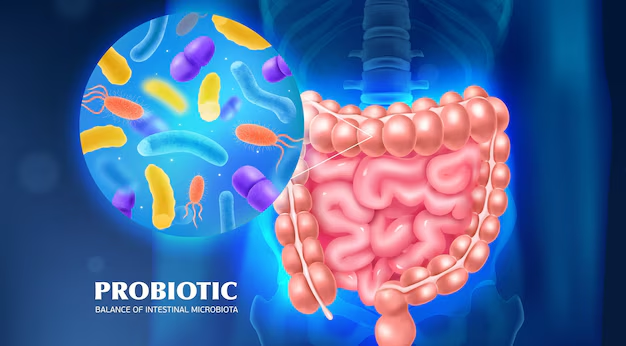Table of Contents
Introduction
Tongue scraping, known as Jihwa Prakshalana in Ayurveda, is an ancient practice designed to remove toxins, bacteria, and debris from the tongue’s surface. In Ayurveda, the tongue is a mirror of the body’s internal health, reflecting imbalances and toxin buildup, also known as ama. Tongue scraping not only enhances oral hygiene but also supports the body’s natural detoxification processes, promoting better digestion, fresher breath, and a healthier overall system.
This article explores the 10 remarkable benefits of tongue scraping in Ayurveda, offering insights into how this simple, inexpensive habit can significantly improve your well-being. From improving digestion to enhancing your sense of taste, tongue scraping is a powerful self-care tool for a balanced and vibrant life.
1. Enhances Oral Hygiene
Tongue scraping effectively removes bacteria, food debris, and dead cells that accumulate on the tongue, reducing the risk of oral infections and cavities.
- Benefits:
- Fresher breath by reducing the buildup of volatile sulfur compounds (VSCs).
- Fewer bacteria in the mouth, lowering the risk of gum disease and tooth decay.
- How to Use:
Scrape your tongue daily in the morning before brushing your teeth for maximum effectiveness.
Quick Tip: Choose a tongue scraper made from antimicrobial materials like copper or stainless steel.

2. Removes Toxins (Ama) from the Body
In Ayurvedic philosophy, toxins (ama) manifest as a white or yellow coating on the tongue. Removing these toxins is a vital step in maintaining balance and health.
- Benefits:
- Prevents the reabsorption of toxins into the digestive system.
- Supports the body’s natural detoxification pathways.
Quick Tip: Combine tongue scraping with drinking warm lemon water for enhanced detox benefits.

3. Improves Digestion
A clean tongue allows taste buds to function optimally, stimulating the digestive process.
- How It Works:
- Improves saliva production, which aids in breaking down food.
- Enhances the body’s ability to identify different tastes, triggering appropriate digestive enzymes.
Quick Tip: Use tongue scraping before meals to improve digestion naturally.

4. Promotes a Healthy Gut Microbiome
Oral health and gut health are closely connected. Removing harmful bacteria from the tongue reduces the likelihood of these bacteria traveling to the digestive tract.
- Benefits:
- Reduces bloating and discomfort caused by harmful bacteria.
- Promotes a balanced gut microbiome, which supports immunity and nutrient absorption.
Quick Tip: Pair tongue scraping with probiotics to maximize gut health.

5. Freshens Breath and Prevents Halitosis
Bad breath, or halitosis, often originates from bacteria and food debris on the tongue. Tongue scraping addresses the root cause, providing long-lasting freshness.
- How It Works:
- Removes odor-causing bacteria from the tongue’s surface.
- Improves saliva flow, which naturally cleanses the mouth.
Quick Tip: Use tongue scraping in combination with a natural mouthwash for all-day freshness.

6. Strengthens the Immune System
By reducing bacterial overload in the mouth, tongue scraping eases the burden on the immune system.
- Benefits:
- Prevents oral infections that can weaken immunity.
- Reduces inflammation caused by toxin buildup.
Quick Tip: Incorporate this habit into your morning routine for consistent immune support.
7. Enhances the Sense of Taste
A clean tongue allows your taste buds to detect flavors more effectively, enriching your culinary experiences and encouraging mindful eating.
- Benefits:
- Greater enjoyment of meals.
- Reduced cravings for unhealthy foods.
Quick Tip: Scrape your tongue daily to make healthy, flavorful foods more satisfying.
8. Balances the Doshas
Ayurveda views tongue scraping as a tool to balance the body’s doshas (Vata, Pitta, and Kapha).
- Benefits:
- Reduces Kapha-related buildup, visible as a thick white coating.
- Enhances digestion and reduces inflammation for Pitta balance.
- Improves sensory awareness, supporting Vata equilibrium.
Quick Tip: Pay attention to changes in the tongue’s coating as an indicator of your dosha health.
9. Boosts Mental Clarity
Ayurveda suggests that removing toxins can improve mental focus and clarity.
- How It Works:
- Reduces the body’s toxic load, allowing energy to be directed toward mental function.
- Improves the communication between the tongue and the brain, enhancing sensory awareness.
Quick Tip: Combine tongue scraping with mindfulness practices for holistic mental well-being.
10. Supports Holistic Health Practices
Tongue scraping aligns with the principles of holistic health, promoting balance and self-awareness.
- Benefits:
- Encourages mindful self-care.
- Complements other Ayurvedic practices like oil pulling and herbal remedies.
Quick Tip: Integrate tongue scraping with other daily Ayurvedic rituals for a complete wellness routine.
Conclusion
Tongue scraping is a simple yet transformative practice rooted in Ayurveda that bridges oral health and overall well-being. By incorporating this daily ritual, you can remove toxins, improve digestion, freshen breath, and even support mental clarity. This ancient method is a testament to Ayurveda’s holistic approach, addressing not just symptoms but the root causes of imbalance.
Accessible, inexpensive, and easy to practice, tongue scraping is a powerful self-care tool for anyone seeking a healthier and more balanced life. Embrace this Ayurvedic tradition to unlock its remarkable benefits and pave the way for greater vitality and harmony.
FAQs About Tongue Scraping Ayurveda
1. What type of tongue scraper should I use?
Ayurveda recommends copper for its antimicrobial properties, but stainless steel and silver are also effective options.
2. How often should I scrape my tongue?
Daily, ideally in the morning before eating or drinking.
3. Can children use tongue scrapers?
Yes, but use smaller, gentler scrapers designed for kids.
4. Does tongue scraping replace brushing and flossing?
No, it complements brushing and flossing as part of a complete oral hygiene routine.
5. Can tongue scraping cause irritation?
Not if done gently. Avoid applying too much pressure to prevent irritation.
6. Is tongue scraping safe for people with sensitive tongues?
Yes, but use a scraper with a smooth edge and scrape lightly.
7. What if my tongue doesn’t have a coating?
Even if the tongue appears clean, scraping helps remove bacteria and enhances taste.
8. Can I use a toothbrush instead of a scraper?
A toothbrush is less effective at removing the coating and may push bacteria further back.
9. How do I clean my tongue scraper?
Rinse it thoroughly after each use and sanitize it with boiling water periodically.
10. Can tongue scraping improve bad breath permanently?
Regular scraping reduces the bacteria that cause bad breath, offering long-term improvement.
